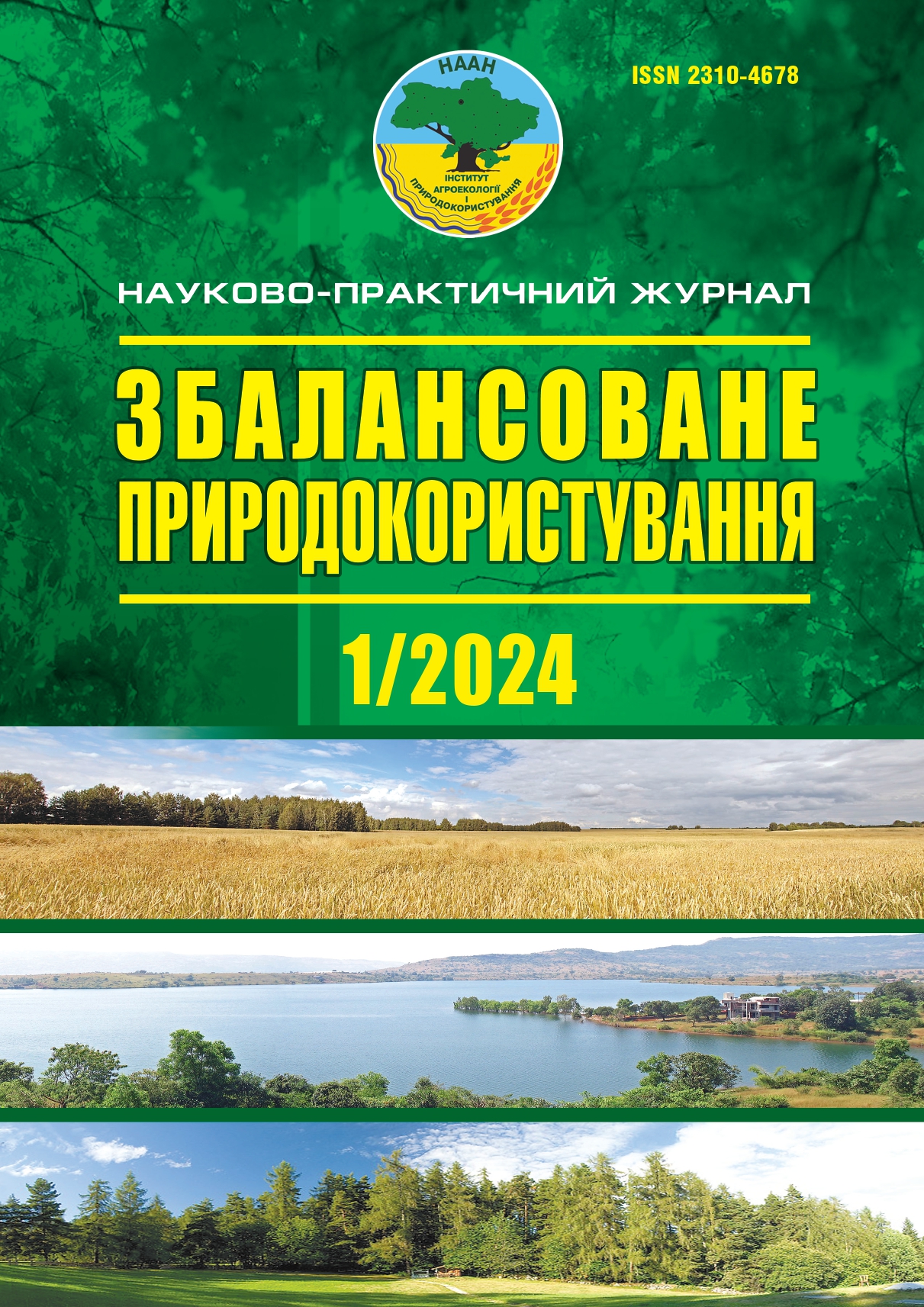EFFICIENT MANAGEMENT OF DOMESTIC SOLID WASTE IN THE REGION'S RESOURCE POTENTIAL DEVELOPMENT SYSTEM
DOI:
https://doi.org/10.33730/2310-4678.1.2024.302617Keywords:
solid household waste, development, resource potential, waste sorting, waste processing, waste management systemAbstract
The study is devoted to the theoretical justification of the effective management of solid household waste in the system of development of the resource potential of the region. It was determined that the problem of solid household waste is partly due to resource origin. It has been established that under modern conditions there is a significant decrease in the world's reserves of non-renewable resources, as well as the deterioration of the natural environment due to the increased impact of production and consumption waste. Analyzing the development potential of the region within the framework of the material and technical block, it is appropriate to highlight the “resource potential of solid household waste” in it. Because the use of solid household waste as a secondary raw material expands the resource potential of the region. The experience of foreign countries regarding the management of solid household waste emphasizes the need for new conceptual approaches to the formation of resource potential, which are based on the rational use of primary and secondary resources.
References
Dziubynska, O.V, Fesina Yu.H, Dziubynskyi, A.V. & Smal, M.V. (2022). Vykorystannia potentsialu tverdykh pobutovykh vidkhodiv rehionu na zasadakh kruhovoi ekonomiky (na prykladi Volynskoi oblasti): monohrafiia [Using the potential of solid household waste in the region on the basis of the circular economy (on the example of the Volyn region): monograph]. Lutsk: Vezha-Druk [in Ukrainian].
Dobryk, L.O. (2018). Geneza poniattia “potentsial” yak bazovoi ekonomichnoi katehorii sotsialno-ekonomichnoho potentsialu rehionu [The genesis of the concept of “potential” as a basic economic category of the socio-economic potential of the region]. Ekonomika i suspilstvo. Seriia “Rozvytok produktyvnykh syli rehionalna ekonomika” — Economy and society. Series “Development of productive forces and regional economy”, 19, 746–755 [in Ukrainian].
Makarenko, M. (2017). Ekonomichnyi potentsial rehionu yak osnova yoho rozvytku [The economic potential of the region as the basis for its development]. Visnyk pryazovskoho derzhavnoho tekhnichnoho universytetu. Seriia: “Ekonomichni nauky” — Reporter of the priazovskyi state technical university. Section: “Economic sciences”, 34, 12–18 [in Ukrainian].
Sokoliuk K.Yu., Holovashchenko A.V. (2018). Ekonomichnyi potentsial rehionu: innovatsiina skladova [The economic potential of the region: innovation constituent]. Ekonomika ta upravlinnia natsionalnym hospodarstvom — Economy and management of the national economy, 20, 29–35 [in Ukrainian].
Leshanych S.Ie. (2013) Formuvannia skladovykh ekonomichnoho potentsialu rehionu [Formation of the components of the economic potential of the region]. Modeliuvannia rehionalnoi ekonomiky — Modeling of the regional economy, 2, 319–328 [in Ukrainian].
Pryrodno-resursnyi potentsial Ukrainy: zabezpechennia dobrobutu ta ekolohichnoi bezpeky naselennia: monohrafiia [Natural resource potential of Ukraine: ensuring the well-being and ecological safety of the population: monograph]. (2021). K.: DU IEPSR NAN Ukrainy [in Ukrainian].
Hobela, V.V. (2021). Ekonomiko-bezpekova ekolohizatsiia: teoriia i praktyka: monohrafiia [Economic and safety greening: theory and practice: monograph]. Lviv: LvDUVS [in Ukrainian].
Kompostuvannia: efektyvno, ekolohichno, korysno dlia gruntiv [Composting: effective, ecological, beneficial for the soil] (2017). URL: https://superagronom.com/blog/115-kompostuvannya-efektivno-ekologichnokorisno-dlya-gruntiv [in Ukrainian].
Navrotskyyi, R.L. (2016). Dosvid krain Svropeiskoho soiuzu v sferi bezpechnoho povodzhennia z tverdymy pobutovymy vidkhodamy [Experience of the European Union countries in the field of safe management of solid household waste]. Ekonomika ta suspilstvo — Economy and society, vol. 7, 621–625 [in Ukrainian].
Illiash, O.E., Holik, Yu.S. (2023). Doslidzhennia resursnoho potentsialu pobutovykh vidkhodiv u Poltavskii oblasti [Research of the resource potential of household waste in the Poltava region]. Problemy okhorony pratsi v Ukraini — Problems of labor protection in Ukraine, 39 (1–2), 47–54 [in Ukrainian].
Shkuratov, O.I. (2019). Problemy upravlinnia pobutovymy vidkhodamy v obiednanykh terytorialnykh hromadakh [Problems of household waste management in united territorial communities]. Spatial development of territories: traditions and innovations: Materialy I mizhnar. nauk.-prakt. konf. (10–11 zhovtnia 2019 r.) — Materials I of the international scientific-practical conference (p. 206–208). K.: DKS-Tsentr [in Ukrainian].
Potapova, N. (2018). Rehionalni aspekty utylizatsii vidkhodiv v Ukraini [Regional aspects of waste management in Ukraine]. Theoretical and Practical Aspects of Economics and Intellectual Property. 18. 60–65. [in Ukrainian].
Downloads
Published
Issue
Section
License
- The authors reserve the right to authorship their work and pass the journal the right to publish this work under a Creative Commons Attribution License license, which allows other persons to freely distribute the published work with the obligatory The authors of the original work and the first publication of this magazine.
- The authors have the right to make independent additional agreements on the nonexclusive dissemination of the work in the form in which it was published by this magazine (for example, to post work in the company's electronic storage or to publish as a monograph) , subject to the first publication of the link to this journal.
- Journal policy allows and encourages the placement of authors on the Internet (for example, in the repositories of institutions or on personal websites) manuscript work as to the presentation of this manuscript to the editorial board and during its editorial processing, as it contributes to The productive scientific discussion and positively affects the efficiency and dynamics of citation published work (see The Effect of Open Access).


